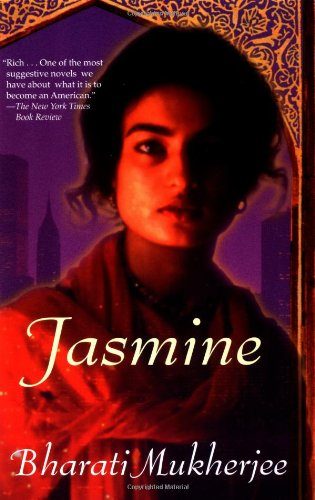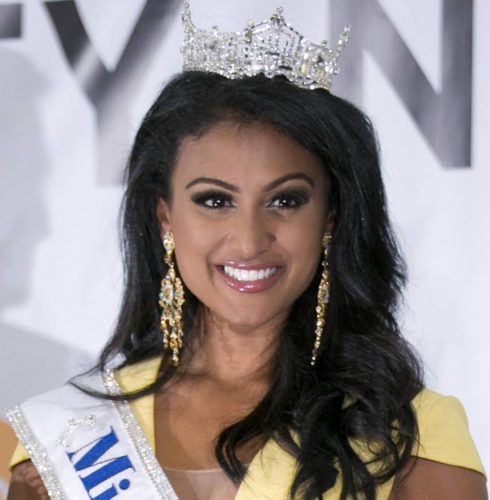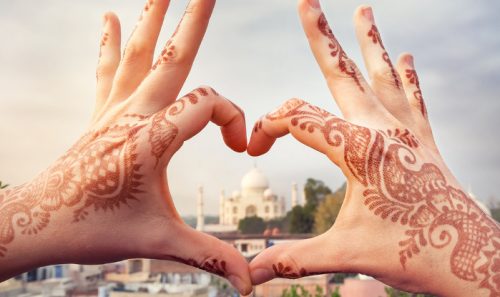What does it mean to be ‘ABCD?’ The letters stand for ‘American Born Confused Desi.’ It is coined as a derogatory term for Indian children who behave more in accordance with American culture rather than their Indian roots.
How I see it is that the first-generation born child of Indian immigrant parents goes through an identity crisis. I recall growing up, my parents being immigrants from South India did not really know how the educational system worked or much about America in general. It was up to me to face whatever was put in front of me, without any real guidance. Yet, the conflict was that my parents wanted me to be the traditional Indian girl; however, if I were to that, the kids at school would mock me.
The result was feeling like having to choose between what parents want and what society wants, and this is rather overwhelming. A child needs those closest in life to be understanding. It is indeed the most crucial time for shaping identities, to discover the purpose and meaning of one’s unique self.
If one feels that they have no one to really relate to, to look up to, to have open communication with (hopefully within your own family), one will slowly start to lose themselves in society, hence why the term ‘ABCD’ has been formed.
Culture and Diversity
It is not just the mere idea of being inclusive to one another, but rather, to encourage comprehension amongst those growing up in a multi-cultural environment. This begins with our leaders, our communities and organizations to take responsibility in regards to creating an aura of acceptance and comfort to each individual.
To start, we must first differentiate between culture and diversity as they are often times intertwined with each other. Culture is along the lines of customary beliefs, as well as materialistic traits of racial religious or social groups. Basically, it may be defined as a shared set of values and goals.
With diversity, it’s relatively along the same lines, however, it is precisely known in being; “The state of having people who are different races or who have different cultures in a group or organization.” It may also be known as the various forms, types, ideas, uniqueness that one may have to offer (Merriam-Webster).
These two terms coincide with each other for the very reason that it deals with the term ‘uniqueness’ — a person who is perhaps a shade lighter than the next is considered ‘unique’ or ‘diverse’ because they are different. They stand out. That is what diversity means, and when cultures are looked into, we consider cultures as something very new and unique to the world.
In Bharati Mukherjee’s excerpt from the book “Jasmine,” she gave insight to her journey to strive for the “American Dream.” She is of Indian descent and immigrated from India to America in hopes to further her studies and expand her knowledge of the world. Little did she know, she would go through the revelation of discovering herself and what she wants in life. Rather than following the set customs of her family, she broke free and went on her own path, struggling as any human individual would.
 [‘Jasmine’ | Photo Source amazon.com]
[‘Jasmine’ | Photo Source amazon.com]
She migrated to the United States and, rather than pushing everything aside, took it all in. In fact, she absorbed it and molded it into the person she portrays before others today.
We as citizens, as human beings, must be compassionate and inclusive of each other. Rather than rejecting what is new and foreign, we should understand it, take the time to acknowledge and immerse ourselves in it. Only then will we start to feel comfortable with our own selves.
Peer Pressure
Hearing the name Donal Trump brings a sense of distrust and cold hearts. He has brought unnecessary fear to our nation.
“We have no idea who these people are, we are the worse when it comes to paperwork,” Trump stated on CNBC. “This could be one of the great Trojan horses.”
To even compare a human being who has no real sense about what is going on to a Trojan horse is absurd. Trump has caused unnecessary havoc and chaos in a situation that could have been contained and dismissed. The fear which people feel when meeting others not like themselves – he fed on it and the fire just seems to burn on. People of diverse culture grew to have no voice again. Especially with the recent presidential election, and the Syrian refugee crisis going on, people who are the slightest bit different are seemingly shut down. Especially those of brown skin. It’s become the events of 9/11 all over again.
People of diverse culture grew to have no voice again. Especially with the recent presidential election, and the Syrian refugee crisis, people who are the slightest bit different are shut down. Especially those of brown skin. It’s become 9/11 all over again.
No wonder people of Indian descent are confused about whether to stick to their roots. When people like Trump feeding off fears of those considered ‘rightfully here,’ would they not rather be more American than lean towards their traditions and roots? That is the root cause of why the problems arose in the first place, right? Just be the typical American that society wants you to be — is that not the standard norm now?
Wrong. There are others fighting for inclusiveness within culture and diversity. People, leaders, are speaking out and for those struggle with cultural identity, we have a tenfold of people who are speaking up for everyone who pushes being unique away. In February of this year, President Barack Obama spoke out for the Muslim community who was under fire because of the shootings, as well as ISIS.
“You fit in here, right here. You’re right where you belong-you’re a part of America too. You are not Muslim or American. You are Muslim AND American” – Barack Obama, White House Weekly Address Feb. 3, 2016
When the President of the United States recognizes that cultural identity is an evolving issue, it brings warmth to the hearts of those struggling with this reality. President Obama recognized the need to see each other, as well as ourselves, for who we are, which is a blend of all cultures and their virtues. That is indeed the foundation of what is America. If we start to address and educate, we may see a sense of community and togetherness rather than isolation and fear.
Yes, the President did indeed address this specifically to Muslims, but I feel that anyone of a diverse culture may relate. Whether you are Chinese, Canadian, African, Egyptian, Indian, etc., you are what you are and you should embrace it rather than push it aside because one told you to do so.
[Read Related: The “American-Born Confused Desi” Conundrum Solved]
Miss America 2014 Nina Davuluri was the first South Indian-American to attain the crown in a pivotal moment in history. Yes, there were people who bashed her over social media, but she rose above that because she knew her sense of self. She was grounded and sure of who she was as an individual and who she was by representing her culture. She spoke out to the world on how she faced culture by,
“…sharing her platform on how to celebrate diversity through cultural competency by asking questions and learning about other cultures…” – CNN.
Davuluri became the role model of every ‘ABCD’ growing up in America by sharing her experiences and telling the world that it is okay to not be 100% Indian. In fact, it should not be expected or enforced especially living in a multi-diverse culture such as America. We are influenced by all those we interact with and by being inclusive of others’ cultures and embracing being a diverse individual, it is what makes one themselves.
 [Nina Davuluri | Facebook.com/NinaDavuluri]
[Nina Davuluri | Facebook.com/NinaDavuluri]
Growing up, I noticed that what I watched on TV, what I read and heard was predominantly about the Caucasian background, and if anyone was of a different color, they were considered the minority. Because of this, I felt that there was never a real chance for us to really make an impact on society.
But that has recently changed. Priyanka Chopra, a Miss World 2000, is of Indian descent and is now the leading lady of the hit action-packed show “Quantico.”
I always have admired her for breaking the norm of Indian traditions, firstly through a beauty pageant, and second, by taking bold risqué roles in Bollywood films which the older Indian generations mostly would not approve. When Chopra was asked what diversity is, she responded:
“In my opinion, diversity mean the inclusion of individuals representing more than one national origin, color, religion, socioeconomic stratum, gender, or sexual orientation, and it is the responsibility of the entertainment community to mirror the world we actually live in every day. To create a screen that shows color-not only black and white, but also brown, Asian, Hispanic, gay, and transgender- and cast an image of the ‘girl next door’ that actually looks like the girls next door with roots from countries around the world” – Elle Magazine
This brings a sensational feeling to break free of the shell which was once encompassing of black and white, but to now include all others and accept them as one. It is in fact how our world is today anyways.
Education
This being said, we need to incorporate what it means to be culturally inclusive. We need to promote cross-cultural understanding where everything starts — education.
Dr. Youmei Liu had argued that to design an effective curriculum that could be applied in the multi-diverse learning institution, both parties — the instructors and the students, and I would even say parents — need to be aware as to what cultures are there surrounding them, their values, virtues, and characteristics (Designing Quality Online Education to Promote Cross-Cultural Understanding).
We need to break the concept that culture is a foreign alien and that it is not really a necessity to learn about.
I always questioned the ways we would be taught about various cultures, especially India. It was always depicted as a country in the slums, of dire poverty, but in actuality — that is just a portion of the country. Even America has places where they have such poverty. It was when I started to embrace my culture, to educate myself on what it is and its traditions, to actually visit India where I started to accept it as a part of me.

It is embedded in my blood and to who I am. I believe the only reason why education in the U.S. lacks what all other countries have and possess is because they have yet to experience what culture is themselves, or rather, fully embrace it. It is because of the lack of willingness to be accepting and inclusive of diversity that, that lack of understanding in knowledge will be passed on to those listening.
So it literally comes down to taking that leap of faith and perhaps going out of your own comfort zone to make that someone else feel okay. You never really will know whether someone is suffering or not unless you communicate with them and you are willing to learn with them. We, as a human race, need to learn to be trusting and non-judgmental of others, but in order for this to happen, one must know their own self and their own values. It really just comes to treating others with respect and kindness. To be generous and to have an open ear.
We need to have this concept of universality amongst all living human beings as well as the openness in discovering ourselves and what it means to be unique. The definition of diversity should not separate us as individuals, but bring us together and shape the world into something that may blossom into something more. So, rather than to debate the great question of whether one, such as myself is an ‘ABCD’, I will say no, but rather that I am an ‘ABPD’- an American Born Proud Desi.
 Angela Goraphy won the title of Miss India Washington back in 2014 along with Miss India USA’s Miss Popularity in 2014. Since then, she has acted in the Malayalam short film “Annorunaal” and the Malayalam Music Single “Luvvh.” She’s a radio personality for both Mazhavil FM and Movin’ 92.5, as well as a full-time graduate student completing her degree in Communications along with minoring in Nonprofit Management and Education at the University of Washington. She hopes to instill confidence in people, especially through the youth community. She wants to be the voice that they perhaps are seeking and empower others to do so as well. You can follow her on one of her two Facebook pages or on Instagram at @angelagoraphy.
Angela Goraphy won the title of Miss India Washington back in 2014 along with Miss India USA’s Miss Popularity in 2014. Since then, she has acted in the Malayalam short film “Annorunaal” and the Malayalam Music Single “Luvvh.” She’s a radio personality for both Mazhavil FM and Movin’ 92.5, as well as a full-time graduate student completing her degree in Communications along with minoring in Nonprofit Management and Education at the University of Washington. She hopes to instill confidence in people, especially through the youth community. She wants to be the voice that they perhaps are seeking and empower others to do so as well. You can follow her on one of her two Facebook pages or on Instagram at @angelagoraphy.





